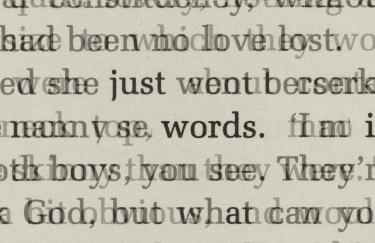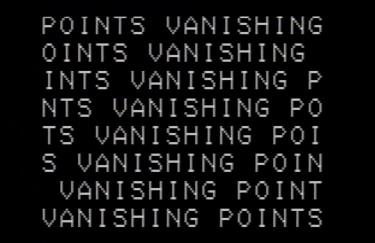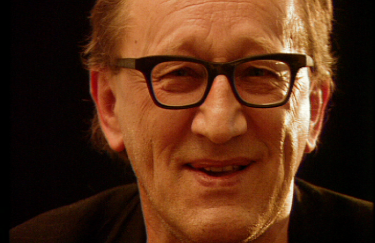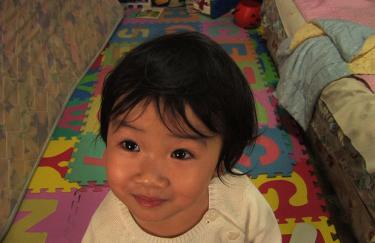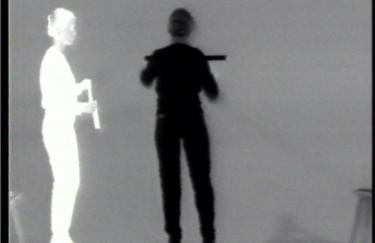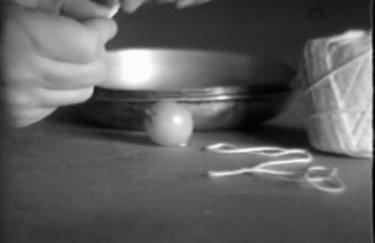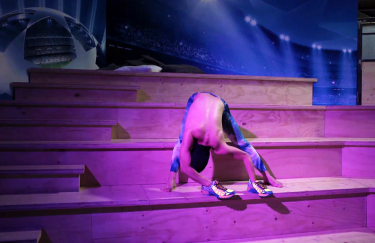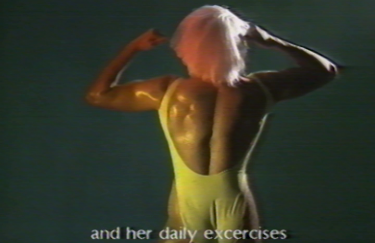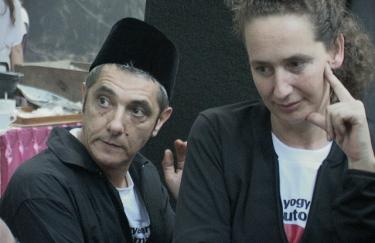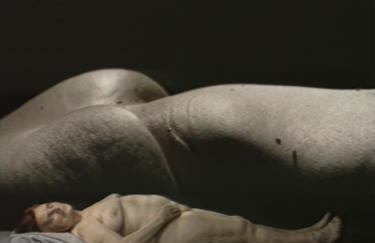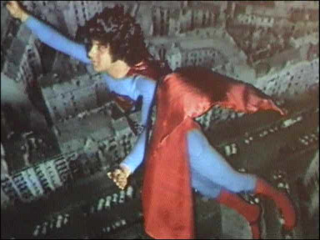
VIDEO BOX 2
ON SELF
| Wednesday 13. April 2016, 7:00 p.m. | Ich bin Punk - Selbstermächtigungen in den 1980er Jahren |
| Wednesday 11. May 2016, 7:00 p.m. | Ich bin's. Künstlerische Selbstexperimente vor der Videokamera |
| Wednesday 15. June 2016, 7:00 p.m. | We can be heroes just for one day. |
| Wednesday 13. July 2016, 7:00 p.m. | Der Blick des Anderen |
I Am a Punk: Self-Empowerments in the 1980s
Locating punk leads straight to Düsseldorf. In the circles of the Ratinger Hof, in the early 1980s, a bustling scene evolved in which—not least because of its closeness to the academy of art—punk and art met. “Naturally this joint celebration was not without friction. Punks beat up artists, and artists snobbishly dismissed the punks, but nevertheless they put up with each other for a couple of years.” (D. Diederichsen). Punk was a movement within of do-it-yourself culture and undisguised self-empowerment. The profession of “brilliant dilletantism”*—paired with then new media technologies—released incredible creativity. Under the motto “better too much than too little” they filmed, made music, wrote, photographed, and partied. The VIDEO BOX I Am a Punk looks back at the images, places, and attitude life of that era.
* Quoted [sic] from GROSSE UNTERGANGSSHOW: Festival genialer Dilletanten, 4 September 1981
Trini Trimpop / Muscha, Blitzkrieg-Bop (1977), 26:28 min.
Kain Karawahn, Mörder würgte Skinhead: Sylvesterdrama am Landwehrkanal Kreuzberg (1985), 3:57 min.
Akiko Hada and Holger Hiller, Ohi Ho Bang Bang: The Two (1988), 4:38 min.
Strafe F.R., Friss (2016), ca. 9 min.
Kain Karawahn, The Berliner Summer Night Dream (1984), 1:14 min.
Norbert Meissner and Klaus Maeck, Abwärts, Bei Mutti (1981), 12:06 min.
Guest: Norbert Meissner
Curated by Dr. Jessica Nitsche and Angelika Gwozdz
It’s Me: Artistic Self-Experiments before the Video Camera
Since the 1970s. video technology has offered artists an optimal opportunity to present themselves: their own body, their own action, their own identity. Such artistic positions question the present of the individual in front of the camera and in virtual space and present video art as a memory of these performative and media self-experiments and self-reflections.
Józef Robakowski, My Videomasochisms (1990), 4:27 min.
Rotraut Pape, Rotron (1982), 6:20 min.
Ulrike Rosenbach, Good luck for a better art (1976), 4:19 min.
Freya Hattenberger, Ich bin’s (2004), 6:50 min.
Thomas Kutschker, Me, Myself and I (2009), 4:15 min.
Guest: Ulrike Rosenbach. Freya Hattenberger will join via Skype.
Curated by Dr. Renate Buschmann
We can be heroes just for one day
On Heroes and Antiheroes
Heroes today are no longer characterized by the classic values of supernatural forces and claim to timeless fame. David Bowie’s famous line from a song “We can be heroes just for one day” describes this change in mean in which the identity of heroes now appears more in the eccentric, the individual and the fleeting.
The selected videos shed critical light on literary and cinematic clichés about heroes, rejected the supposed cult of the star, and reveal fame to be a consequence of unconventional passions.
Dara Birnbaum, Technology/Transformation: Wonder Woman (1978/79), 5:50 min.
Michalis Nicolaides, Superman (2001), 7:20 min.
Ira Schneider, A Weekend at the Beach with Jean-Luc Godard (1984/2014), 8:00 min.
Georg Maas, Das andere Universum des Klaus Beyer (1994), 30:00 min.
Max Almy, Deadline (1980), 4:00 min.
Guest: Michalis Nicolaides
Curated by Dr. Renate Buschmann
The Gaze of the Other
The gaze of others is more crucial for the self than we generally believe. It is richly faceted, and people face it in very different ways in life. Through it we discover ourselves as autonomous subjects; we understand who we are. But as soon as the gaze is turned on us turns us into an object as well. At the same time, we find ourselves in it as a potential voyeur, who gazes secretly and, in the process, senses meaning, satisfaction, ,but also shame. The philosopher Jean-Paul Sartre observed that it is the gaze of the other that points to one’s own self and existence. Yet it is also the gaze through a medium (photography, film) that creates images of the subject in which reality and the imagination blur.
Lilian Franck, Cora: Un poème visualisé (2000), 9:00 min.
Dara Birnbaum, Canon: Taking to the Streets (1990), 10:00 min.
Susan Hefuna, ANA/ICH (2006), 3:23 min.
Susan Hefuna, Angst eats soul (2016), 4:20 min.
Gábor Bódy, Either/Or in Chinatown (1984), 37:00 min.
Guest: Susan Hefuna
Curated by Anna Ferdinand, B.A.

